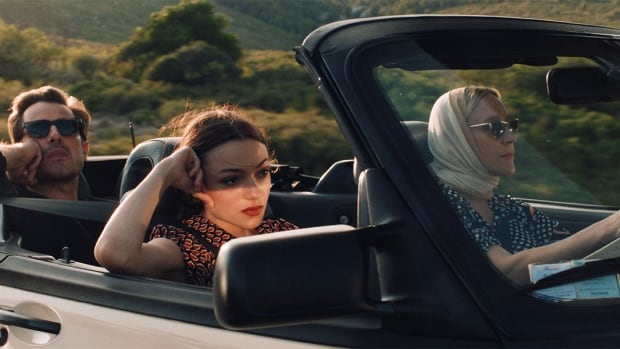
After years marked by COVID closures and Hollywood strikes, 2024 was supposed to be the year the Toronto International Film Festival finally reopened its doors to the glitz and glam of fawning fans, red carpets and celebrities.
But while celebrities did make their way to the city in big numbers, the “people’s festival” ended up with a slightly different focus. Instead of buzzy box office smashes, TIFF this year has been more about local talent and Canadian success — with a considerable number of homegrown films dominating conversation.
Here, CBC’s film critics break down some of the films that wowed crowds — and which are worth your time.
Young Werther
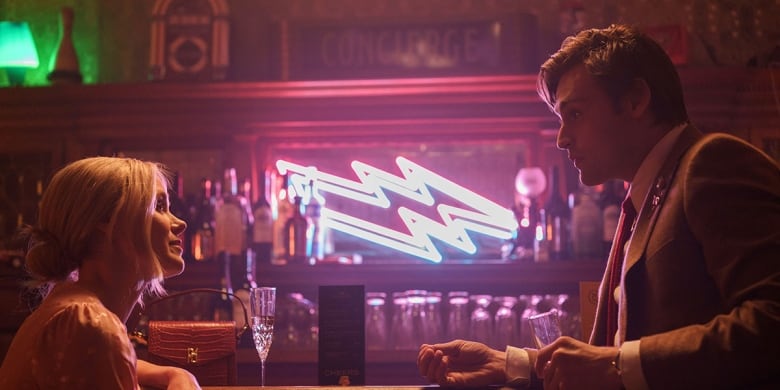
Kitschy. Colourful. Manic. Heartfelt.
They’re not exactly the descriptions you’d expect for a story born from the 18th century artistic movement Sturm und drang (translation: “storm and stress”). But José Lourenço’s Young Werther is more an evocation of the Johann Wolfgang von Goethe novel The Sorrows of Young Werther it’s based on than a recreation.
We follow the hedonistic, manic and — despite himself — charming Werther as he makes a pit stop in Toronto on his way to a planned tour of Europe. There he stumbles on Charlotte (Alison Pill), the reserved but beautiful local who, unfortunately for him, also happens to be engaged.
Beyond the simple joy of seeing a Canadian city actually play itself on screen, Werther‘s bittersweet love story bubbles with charisma, originality and heartbreaking honesty. Because, in his feature debut, Lourenço has been able to capture something equal parts off-kilter, hilarious and, when it eventually decides to take itself seriously, surprisingly sincere. — JW
Universal Language

This strange, slow-acting and surprisingly touching piece of cinema exists in an alternate reality. A vision of a snow-swept Winnipeg where Farsi is the first language, but occasionally you hear a smattering of Québécois slang.
Inspired by his love of Iranian cinema, director Matthew Rankin collaborated with Iranian friends and the Winnipeg community to create an urban space that feels distant but familiar. The endless beige buildings and random turkeys bring to mind the bureaucratic madness of Terry Gilliam’s Brazil.
The deadpan surreal quality reminds me of Iceland’s master of the blackest of black comedies, Roy Andersson. With a wandering tour guide, children on a quest to melt frozen money and a son finally returning home from Quebec, the result is easily one of the most original and quietly enchanting films to come out of this country. — EG
Bonjour Tristesse

This movie is an ethereal feast for the eyes and ears but, beyond that, a meaningful rumination on what it means to be a woman at different stages of life. This is writer-director Durga Chew-Bose’s debut feature, but it feels so much more accomplished than the words “debut feature” conjure. Chloë Sevigny plays a closed-off, buttoned-up fashion designer, trying to relate to a free-spirited teen (played expertly by Lily McInerny), while navigating a complicated relationship with her father.
The movie’s dialogue is full of painful truths, and it’s a role Sevigny dominates in. Bonjour Tristesse is similar in its pacing and beauty to Call Me By Your Name, so if viewers enjoyed that film, this comes highly recommended. — TB
The Order
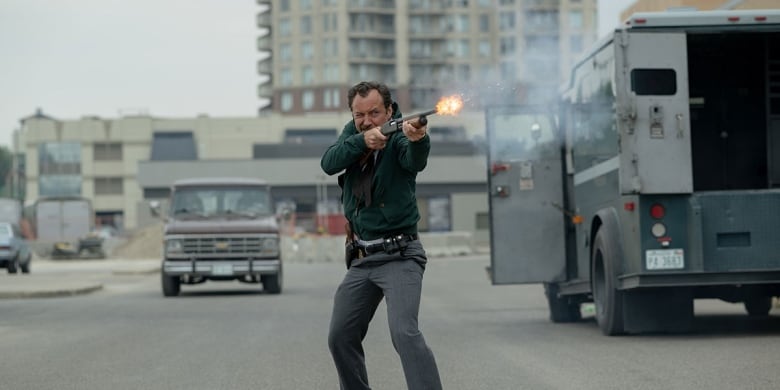
The Order is far from the first production to use the rise of far-right violence as its central theme. But what this Canada-U.S. co-produced film does exceptionally well is tie those issues so clearly to our present day.
Starring Jude Law as FBI agent Husk and Nicholas Hoult as white supremacist Robert Jay Matthews, The Order follows the real-life story of the selfsame bank-robbing terrorist organization that orchestrated the assassination of radio host Alan Berg in 1984.
It focuses on both that group and The Turner Diaries, a racist novel intrinsically tied to a series of events from the 1992 Ruby Ridge standoff, to the siege at Waco, to the 1995 Oklahoma City bombing. But through an intentionally spare, haunting style which director Justin Kurzel perfected in Snowtown and True History of the Kelly Gang — his equally haunting retellings of criminal history — The Order reminds us how close that history really is.— JW
Rumours
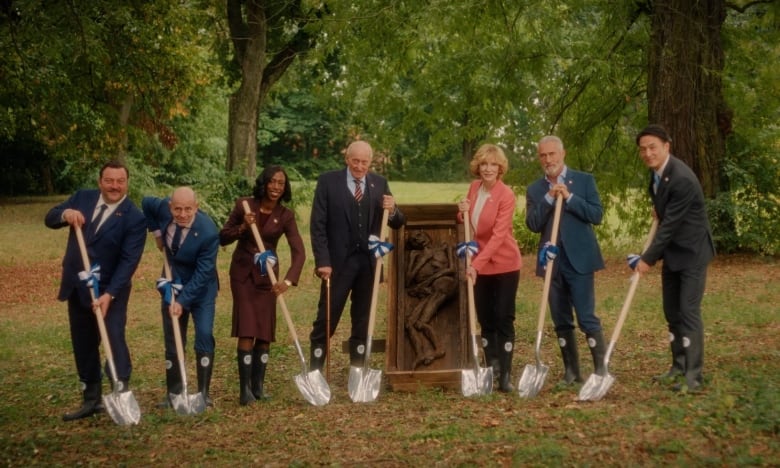
This film has it all — a giant, pulsing, goopy brain, a beefcake version of Justin Trudeau, a delightfully daffy Cate Blanchett performance and masturbating zombies. Still, somehow, it’s a brilliantly incisive political comedy and a vicious takedown of the global political landscape. It is laugh-out-loud funny, and Canadians in particular have a lot enjoy in Roy Dupuis’s performance as the prime minister.
This movie starts out as a fairly straight ahead political satire but then goes completely bonkers, as one would expect from the minds of Evan Johnson, Guy Maddin and Galen Johnson. If you’re OK with the movie starting in a grounded place and rocketing off to Mars, you’ll love this one. It’s very funny, and one of the best from this year’s festival. Cate Blanchett as a sort-of silly Angela Merkel was, for me, one of her all-time best performances. —TB
40 Acres
Despite the claims, as CBC News previously reported, that vendors in the Sudbury, Ont., area remain unpaid by the production company, 40 Acres is one of the most impressive debuts I’ve seen in years. A journeyman TV director well known to Toronto crews, R.T. Thorne appears to have applied all his skills, taking us inside the Freemans, a Black and Indigenous family trying to protect their farm in a near-future post-apocalyptic scenario. With its breakdown in social order, 40 Acres may seem similar to Alex Garland’s Civil War. But Thorne, who also collaborated on the screenplay, keeps the focus tight, embedding us with a family battling roving ravagers and each other. Standout performances include the patient presence of Michael Greyeyes and the iron will of Danielle Deadwyler. As Thorne’s camera twists and turns we see a family united by discipline but fraying at the edges. A stylish start from a director going places. — EG
The Apprentice
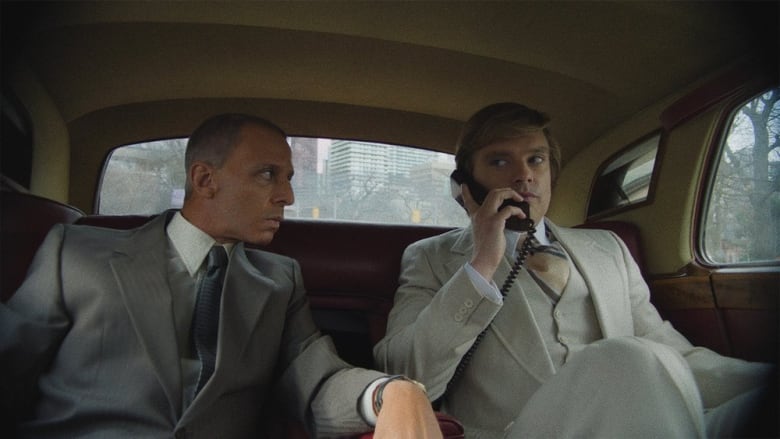
It might seem strange to simultaneously say a movie missed the mark and also recommend it. But despite its shortcomings, this Canadian-produced Donald Trump biopic is still worth keeping on your radar.
Following the former U.S. president’s earlier years as a New York City real estate mogul, The Apprentice pulls no punches in its depiction of Trump. And while director Ali Abbasi said at the film’s sole TIFF screening he meant to make something people of all political stripes could enjoy, Trump himself has already sent a cease and desist letter to the filmmakers.
That has put plans for a wide release in jeopardy, though Abbasi did recently mount a successful Kickstarter campaign to fund grassroots distribution. Whatever happens, the film will be worth seeing to be informed in the discussions it is sure to provoke — as well as to witness Jeremy Strong’s astounding, career-defining turn as Roy Cohn. — JW